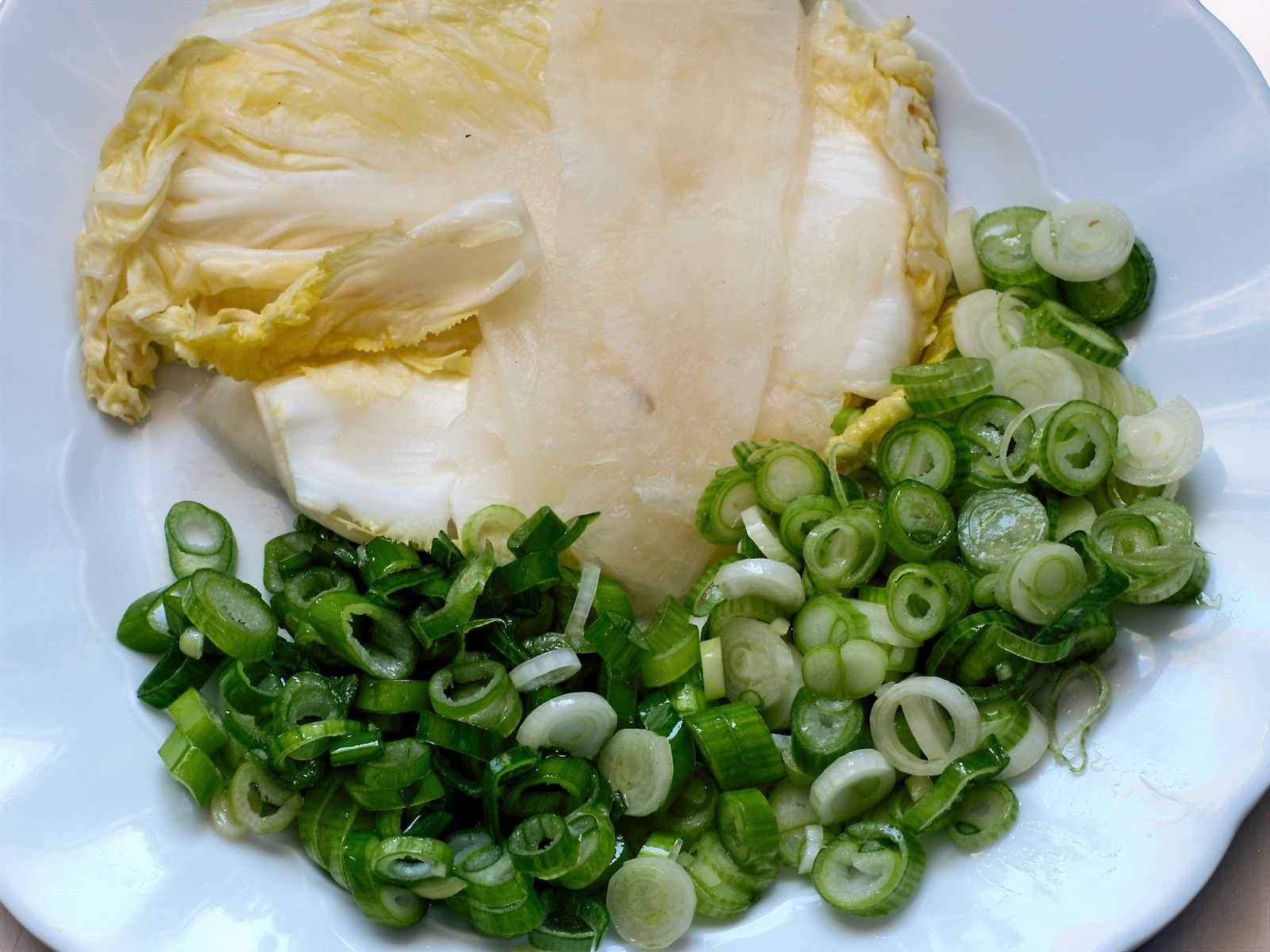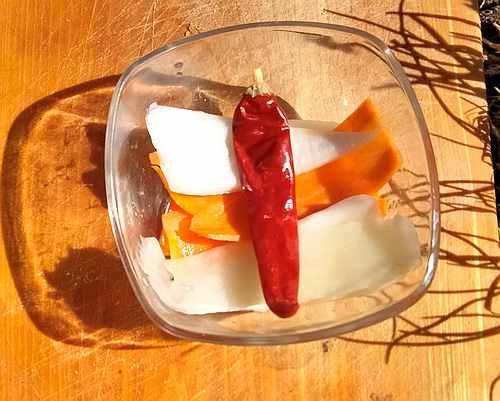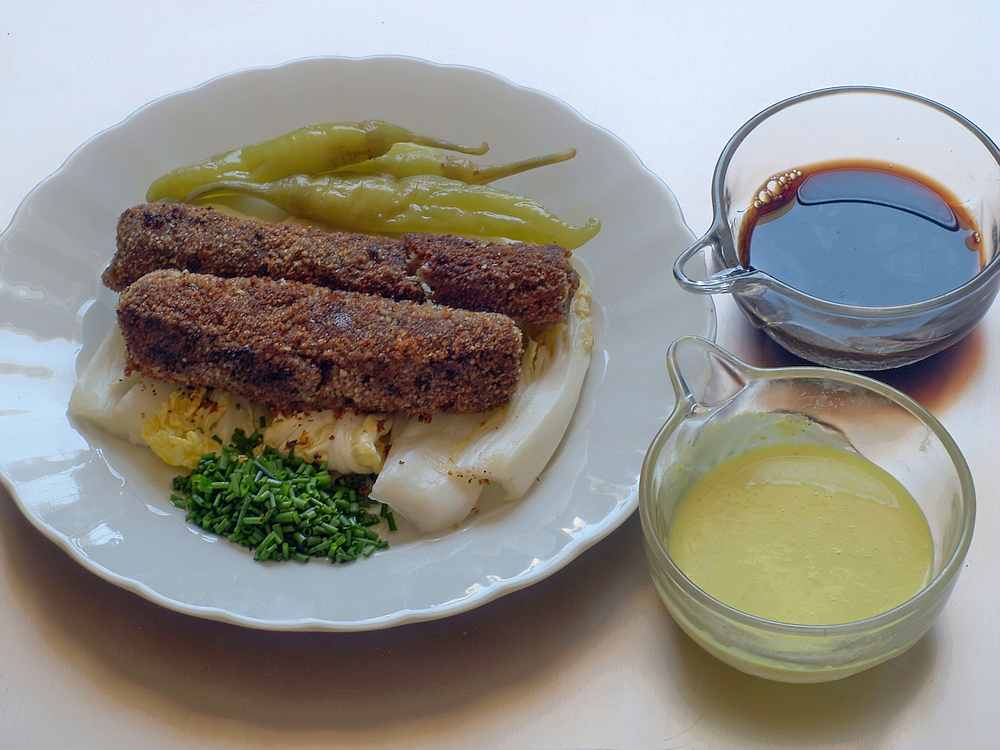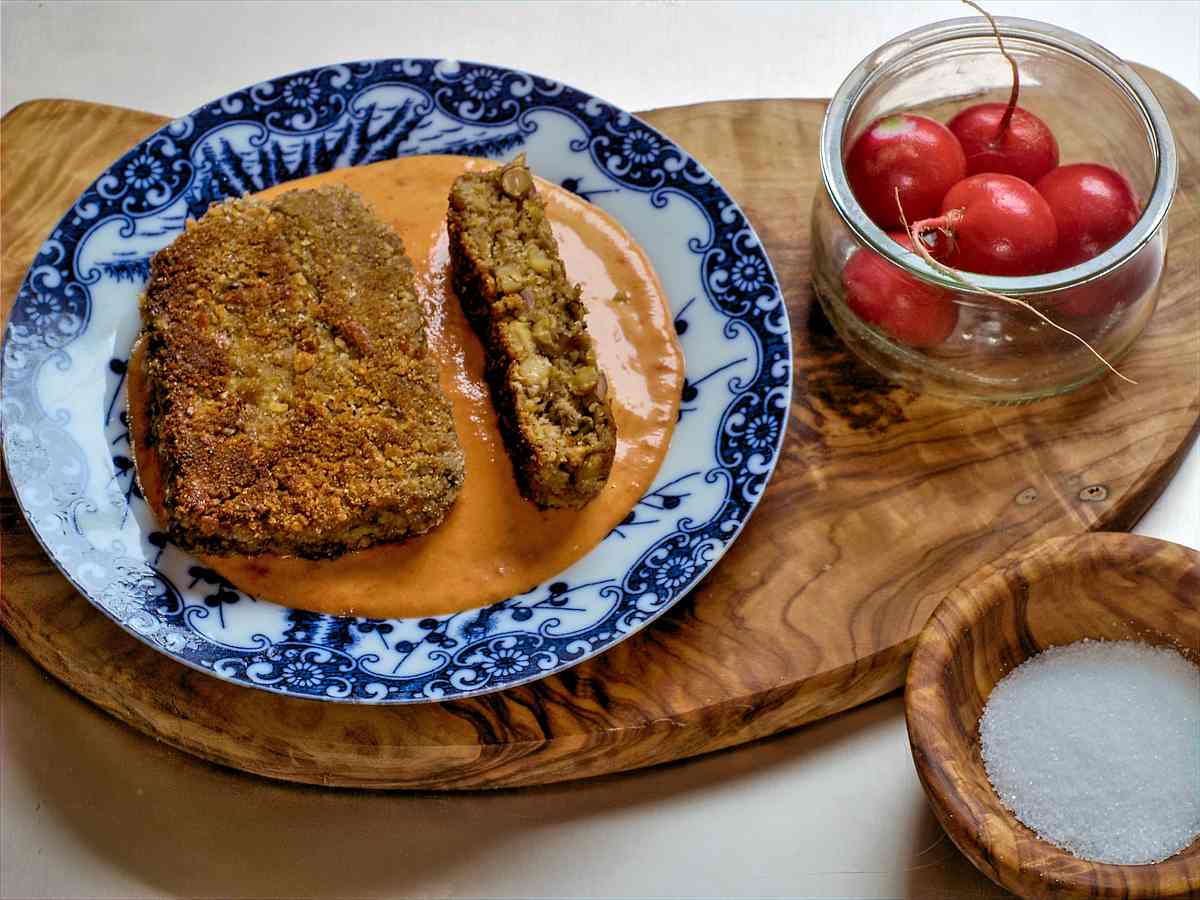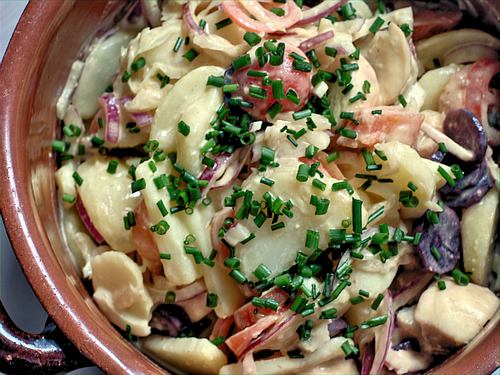Posted on April 8, 2023 by KPBaumgardt
When the Stuttgart newspaper on 19.02. a Article “Health trend: The postal biotes are coming!”, one could read more about the trend than felt it.
After all, a search engine suggested “buy postal biotics” as a possible query in this context, but with “Postbiotics“ the excretions (“metabolic products”) of the probiotes, e.g. If, for example, lactic acid or alcohol and Co2 together with any probiotic “germs” that have died off due to heating or similar are referred to, there is no further need for yoghurt and sauerkraut eaters.
The expansion of the vocabulary around the biome in the “narrative Review” reminds of the importance of intestinal dwellers and fermentation, an actually interesting to fascinating field that I had researched a long time ago, read under “Gut brain, gut bacteria, mood and overweight„.
Between kimchi and sauerkraut: Chinese cabbage and radish with salt and a little chilli, compressed by hand in a wire-frame jar and fermented for five weeks. In addition fresh spring onions with hemp oil.
Bifidobacteria change mood. Lactic acid makes mice brave.
That was the “sensational” essence of my internet research mentioned above, and so the following find was less surprising:
Psychobiom: Intestinal flora influences the psyche and vice versa
Everyone has an individual composition of different intestinal bacteria. This so-called intestinal flora helps determine whether we feel depressed, alert or anxious. The “microbiome”, i.e. the community of microorganisms in the intestine (bacteria, fungi), which influences our psychological well-being, is called “psychobiome”.
The human being as a body and soul unit with all its affects is “slowly” recognizing the importance of sauerkraut and kimchi, yoghurt and kvass, bionade, kefir and raw vegetables.
In nutritional advice, the point of view is also taken that very few decisions are made purely on the basis of reason, so that a change in diet will definitely need 2-3 years with reliable support, with the aim of fun nutritional skills to get. The need for long-term obesity seminars is correspondingly high.
In the “Training” area, e.g. B. Courses on “fermentation” conceivable – because of competence, self-efficacy and self-help.
Just as important as eating is the skillful use of drinking, which has a dual function, as the myth goes: Narcissus while drinking (from the source where he fell in love with his reflection) had a “other thirst” developed. The proverb “Eating and drinking keeps body and soul together” is not an exaggeration, everything has its function, even if it is not always optimal.
The current discussion of advertising in the food sector, which is often aimed at children and wants to tempt them to consume too much sweets, shows the parents’ lack of critical nutritional competence, also shows that “the environment” affects the individual and their (unconscious purchase -) affects decisions.
Launching new products is sometimes seen as an attack on habit, and nothing is as powerful as habit. A “biome-healthy” tempeh patty on kimchi falls into this category, but it’s also rare and hard to come by, so valuable.
Fermented tomato paste and almond cream with breaded soy tempeh sticks – just as nice and good as fish sticks and at the same time the meatless, more sustainable, i.e. contemporary alternative.
It can be assumed that such foods promote the “gut biome” and (indirectly) have a positive effect on the mood: The gut-brain axis is a two-way communication network that connects the intestinal and main nervous systems.
This network is not only part of the body structure, it also includes “communication pathways” involving glands and humors, metabolism and the immune system.
The potato salad also shows that there is almost always a wide range of possible recipes. Here, too, ferments can be “worked in” in order to positively influence taste and enjoyment, which is often also a question of expectation, experience and perception.
Related posts:
- Sauerkraut Salad: Sweet, Dead or Alive…
- Probiotic foods, yogurt and gut flora
- Folic acid + vitamin B12: protection against stroke
- More brains with yoghurt?
- Kimchi crisis: South Korea in trouble
Filed under: General | No comments “
